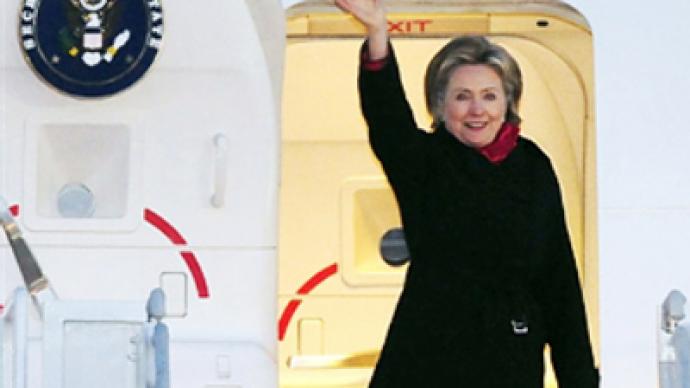Reality limits US drive for changes

US Secretary of State Hillary Clinton has arrived in Beijing on the final leg of her Asian journey – the first one in her new post.
While the visit might bring no breakthrough decisions or statements, the very choice of Asian countries as the destination for her first significant foreign trip indicates the direction of the foreign policy shift.
Her predecessors in the post all made extensive trips to Eastern and Western Europe indicating the primary international objective of the US administration – to strengthen and expand NATO and also to secure the positions in the former Communist countries and Soviet republics. At the same time, more complicated questions, first of all relations with Russia were not usually touched upon during these first trips.
Hillary Clinton's first foreign travel is in line with this tradition. US positions in countries like South Korea and Japan, and even Indonesia are solid and clear. The visit to China, however, is different. The country has recently suspended the military co-operation with the US over arms supplies to Taiwan and economic relations between Beijing and Washington are under threat due to China's fears of American protectionism. The human rights issue, which is traditionally brought up by members of the US Democratic Party is also an unsolved problem.
So at first glance, her visit to China might look as an indication that Clinton is ready to deal with the most acute problems of US foreign policy straight away, but there are certain limitations to her initiatives.
First, the military contacts with China and the unresolved Taiwan problem are regulated very strictly by the so-called six assurances – foreign policy guidelines that guarantee a stable
supply of arms from the US to Taiwan and also state that the US will not mediate in China-Taiwan affairs. Without breaking these guidelines there is little Clinton can do to improve the military relations with China that suffered a severe blow in the autumn last year after the US decided to supply Taiwan with US $6.5 billion worth of weapons, including attack helicopters and anti-aircraft missiles.
On the other hand, before the start of her visit, both Washington and Beijing officials said that the dialogue between the two countries will resume as a representative delegation of the US Defense Ministry visits China at the end of February.
Second, the economic situation in the world is changing rapidly due to the global economic crisis and talks over economy issues will now be different from those of just a few years back. China has become the world's third-largest economy and managed to accumulate considerable financial resources, which it has already started to use to ensure even stronger positions on the international economic scene.
There is, first of all, the major deal between China and Russian oil companies securing Russian oil supplies to China for the next 20 years in exchange for Chinese credits. The US might use
protectionism as a leverage to prevent the growing economic co-operation between China and Russia, but with this major deal already signed, Clinton can only hope to slow down such developments.
As for the human rights issue it is unlikely that the new Secretary of State will take risks and bring up really urgent problems. Hillary Clinton has a chance to learn how sensitive Beijing officials are to the problem when her human rights speech at the UN Conference on women was banned from the Chinese media in 1995. A repetition of this incident would hardly be a good move for Clinton, who said before embarking on the trip that her country “was ready to listen” to Asian partners in the hope of findiing solutions to current challenges rather than lecture and pressurise them.
Nikolay Polyakov for RT












